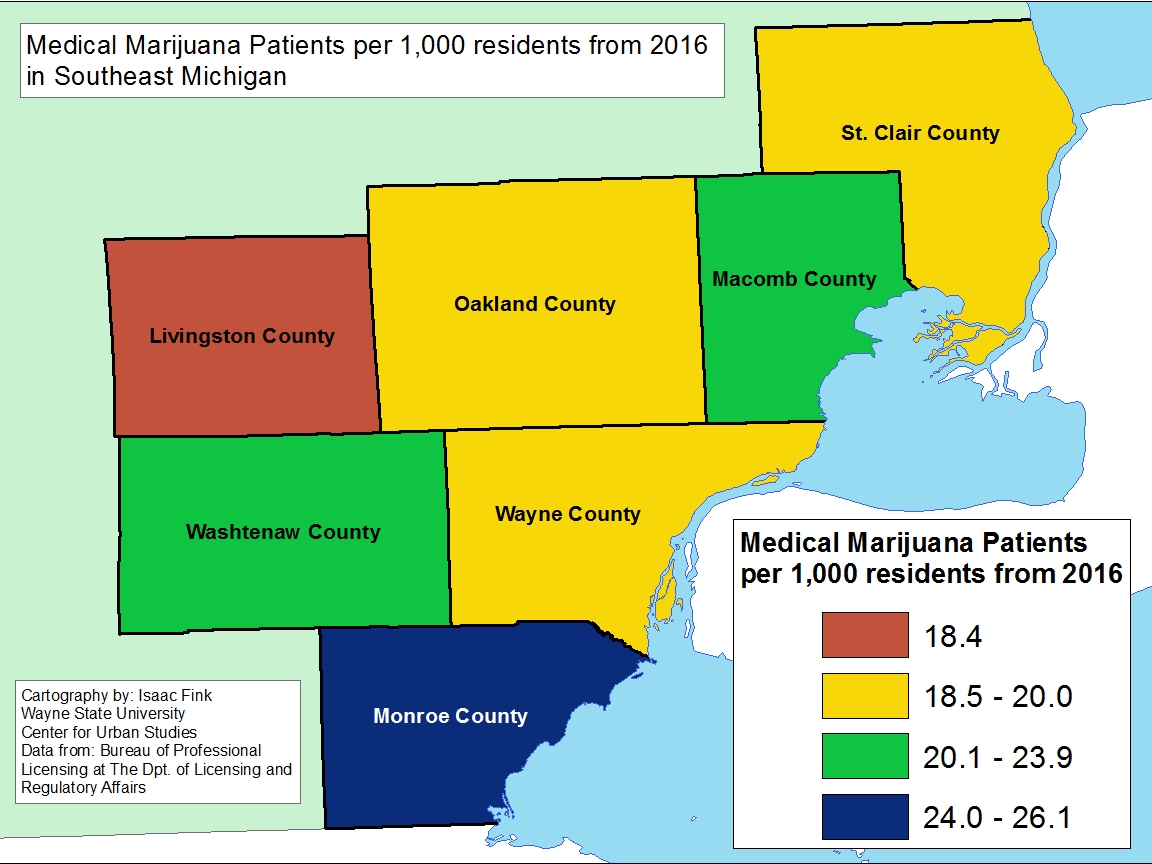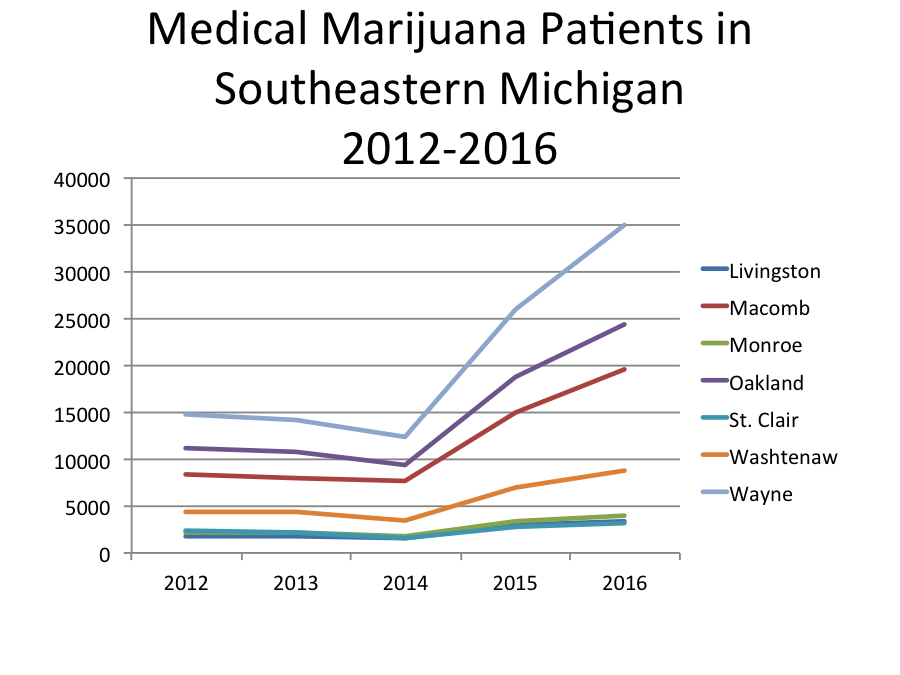In 2016 in Southeastern Michigan there were 98,055 registered medical marijuana patients, a number that has grown by about 45 percent since 2012, according to data provided by the Michigan Bureau of Licensing and Regulatory Affairs (LARA). LARA is required to provide an annual report on the Michigan Medical Marihuana Program, which includes the annual number of patients by county.
In terms of sheer volume, Wayne County had the highest number of medical marijuana patients in the region at 34,941 in 2016. However, when examining the data per capita per 1,000 residents, Monroe County had the highest number at 26. In Monroe County in 2016 there were 3,889 medical marijuana patients. In 2012 the total number of medical marijuana patients in Monroe County was 2,118; between 2012 and 2016 the total number of patients in Monroe County grew by 55 percent.
On the opposite end of the spectrum, Livingston County had the lowest number of medical marijuana patients per 1,000 residents at 18, which was the equivalent to 3,463 total patients. Between 2012 and 2016 the number of medical marijuana patients in Livingston County grew by 54 percent.
Wayne, St. Clair and Oakland counties all had a similar number of medical marijuana patients per 1,000 residents as Livingston County. All three counties had about 20 medical marijuana patients per 1,000 residents in 2016. St. Clair County has experienced the highest percentage of growth since 2012 at 72 percent.
As the data shows, the number of medical marijuana patients in Southeastern Michigan has grown over the last five years, and this isn’t a trend unique to the region. Statewide data proves that throughout Michigan the number of medical marijuana patients has increased. In the graph above, a decline in the number of the medical marijuana patients is shown between 2013 and 2014, however this decline is not necessarily accurate. Rather, it reflects the two-year registry program, so the number reflects only the new patients who were required to apply that year.
While the number of medical marijuana patients in Michigan continues to grow there are efforts to fully legalize marijuana for adults 21 years of age and older. On May 5, the Michigan Coalition to Regulate Marijuana Like Alcohol, submitted language that would create a system allowing for the legal cultivation, sale and regulation of the substances. If enough signatures are gathered, the hope of the organization is for the ballot initiative to be on the November 2018 ballot.

